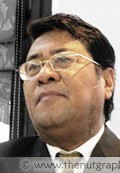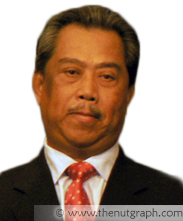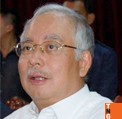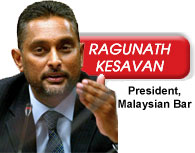By Deborah Loh | The Nut Graph
ALARM bells were rung recently about an impending water crisis in Selangor. The federal government blames the state government for delaying the Pahang-Selangor raw water transferproject by refusing to let building of the Langat 2 water treatment plant begin. The Barisan Nasional (BN) government says this will result in a water crisis as early as 2014, with shortages to be felt from 2012.
It all comes back to data. And what seems to have been forgotten is that the figures for the project crisis that the federal government arrived at have been contested. A group of non-governmental organisations, the Coalition for Sustainable Water Management (CSWM), has since 2009 alleged that projected water demand is grossly inflated to justify the RM9 billion interstate water transfer project.
In 2009, CSWM called into question the National Water Resources Study 2000-2050, commissioned by the federal Economic Planning Unit (EPU) in 2000. This is the study the federal government is citing to support their argument for the water transfer project. CSWM’s objections are well documented, available online, and have been given to the federal government. Until today, however, Putrajaya hasn’t explained the questions raised by the coalition. Instead, the BN appears bent on pushing the project through.
But who is the consumer supposed to trust, then?

(Pic by Bongani | sxc.hu)
Inflated data?
The federal government should explain the methodology used in the National Water Resources Study. CSWM contends that the recommended method for estimating water demand was not used. This method is adapted from the 1989 Public Works Department (JKR) Design Criteria and Standards for Water Supply Systems, and is endorsed by the Malaysian Water Association (MWA).
Instead, the method used in the National Water Resources Study was to estimate water demand by taking into account several parameters such as future Gross Domestic Product (GDP) growth, per capita GDP, and manufacturing sector output growth.
CSWM says such a method involving macroeconomic indices involves “unsupported assumptions” in projecting water demand. For one, it does not take into account changes in development plans and unforeseen economic scenarios.
The MWA/JKR method also recommends 320 litres per capita per day (l/c/d) in urban areas as the guideline for estimating water consumption. This rate is calculated from overall water usage by commercial, industrial and domestic use, and includes an estimated loss of 25% due to non-revenue water loss.
However, the EPU’s National Water Resources Study method breaks down water usage by sectors to estimate demand. CWSM argues that making separate projections for domestic, commercial, industrial and non-revenue water results in larger overall figures when projecting demand.
Using the MWA/JKR method would have concluded a projected water demand of 147 l/c/d in the year 2020 for the whole state. The National Water Resources Study method, however, arrived at demand that ranged from 139 to 611 l/c/d for the industrial sector alone.
Using the National Water Resources Study, the Energy, Green Technology and Water Ministryhas asserted that daily demand for water in Selangor, Kuala Lumpur and Putrajaya will reach 4,907 million litres. Without the interstate project and the Langat 2 plant, water supply will be 476 million litres short daily in 2014, the ministry claimed.

Khalid
Flaws
So is the EPU’s projected demand for water inflated or not? The Selangor government has different projections by which it claims the state has enough water without Pahang’s help until 2019. Menteri Besar Tan Sri Khalid Ibrahim, who said the state is looking at alternative water sources, has been challenged by Selangor Umnopoliticians to justify this position.
Additionally, Water and Energy Consumer Association of Malaysia(Wecam) secretary-general S Piarapakaran says Selangor’s estimate of sufficient supply until 2019 is only true if water demand grows at a rate of 1% a year from now until then. Citing figures from the Malaysian Industry Water Guide, he says water demand growth is expected to be about 3% yearly, based on the 3.4% demand figure between 2007 and 2008.

Piarapakaran (Courtesy of S Piarapakaran)
Piarapakaran, a water engineer, tells The Nut Graph in a phone interview that other flaws in the National Water Resources Study, if rectified, would project an even higher demand for water. Hence, he says there may even be an increased likelihood of a water shortagesooner rather than later.
Three key flaws in the study, he says, were firstly, failure to take into account the worst-case low water flow scenario, which was what happened during the 1997-1998 water crisis aggravated by the El Nino phenomenon. The second flaw was for the study to fix non-revenue water loss at around 20% when the actual rate of loss now is higher at over 30%. And thirdly, the study, in estimating population growth, did not consider the high number of foreign migrants, legal and illegal, living and working in the state.
“The National Water Resources Study as a 50-year study is questionable. When you plan for 50 years for something like water supply and demand, you need to be able to adjust for every five-year planning cycle. This doesn’t seem to have been the case,” Piarapakaran said.
But he also takes issue with CWSM’s assertion that deriving an average l/c/d demand estimate from lumping together sectoral consumption is a better measurement than a breaking down water usage by sector. Piarapakaran thinks it’s less accurate if an overall average figure is used, in the same way gross per capita income is not a true reflection of individual income.
Will there really be a water crisis?
Who is correct? Water supply is an emotive issue and many remember the dry years of 1997-1998. The delay in restructuring Selangor’s water industry, and now the Langat 2 treatment plant under the inter-tate water transfer project, has been politicised to stoke fears of a repeat crisis.
The quality of data and methodology is important, and state and federal governments, as well as water industry players, have to be transparent about what they put into their projections.Selangor is commissioning a new study on water demand.
Compounding the public’s confusion about whether there is an imminent water crisis in Selangor is the standoff between the federal and state governments over the restructuring of four private water concessions.

Pua
The restructuring of the state’s water industry is a first step towards averting a near-term crisis, says DAP publicity chief Tony Pua, who also worked on the restructuring plan. He argues that if the state can take over the four water concessionaires – Syabas, Splash, Puncak Niaga and Abbas – and manage a consolidated treatment and supply operation, progress to cut non-revenue water loss can be stepped up.
That’s not likely to happen anytime soon, however. Syabas, for example, claims that Selangor is preventing it from continuing maintenance of pipes pending completion of the restructuring. Pua disagrees, saying the company’s inability to conduct pipe repairs and replacements is due to its cash flow problems, which began even before the restructuring exercise.
“If Syabas wants to resolve its cash flow problems to continue maintenance, they either let thefederal government bail them out or accept the Selangor government’s RM5.71 billion takeover offer so the state can continue the work,” Pua tells The Nut Graph.
Right now, the battle over water in Selangor has become a battle of political wills and business interests. At the end of the day, consumers need to know if their tax money is being put to the best use to avert a water crisis. But in order for that to happen, greater transparency is needed on how studies are conducted, on water concession agreements, and on who stands to lose if the Pahang-Selangor water transfer project is delayed. For now, there seems little consumers can do or say to influence the outcome.







 Prime Minister Datuk Seri Najib Razak, when asked to comment on
Prime Minister Datuk Seri Najib Razak, when asked to comment on  (Asia Sentinel) One of Mahathir's protégés evades charges, but his accusers are nearly capsized
(Asia Sentinel) One of Mahathir's protégés evades charges, but his accusers are nearly capsized  The Malaysian Bar is disappointed that the Court of Appeal, by a majority, has decided to grant the appeal by V K Lingam, Tun Ahmad Fairuz and Tun Eusoff Chin for leave to quash the Report by the Royal Commission of Enquiry on the “video clip incident” in whole or in parts.
The Malaysian Bar is disappointed that the Court of Appeal, by a majority, has decided to grant the appeal by V K Lingam, Tun Ahmad Fairuz and Tun Eusoff Chin for leave to quash the Report by the Royal Commission of Enquiry on the “video clip incident” in whole or in parts.